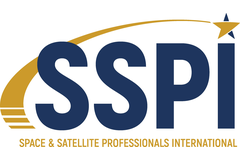The Beyond Earth Institute: Shaping the Policy Path to Communities Beyond Earth
Event Details
***UPDATE AND NEW DATE AND TIME - THIS EVENT HAS BEEN POSTPONED TO THURSDAY, OCTOBER 21ST. IF YOU HAVE ALREADY REGISTERED AND CANNOT MAKE THAT DATE, PLEASE LET US KNOW AND WE WILL REFUND YOUR REGISTRATION FEE. OTHERWISE, WE WILL SEE YOU ON THE 21ST!***
Can humans live and work in space – permanently? Is humankind’s destiny to become an off-world (or multi-world) species? Is it science fiction, or have we reached a point where it’s just a matter of time, resources, and imagination?
In 1976, Gerard K. O’Neill spelled out a vision in The High Frontier to build rotating cylinders in space that could house thousands of people in comfortable conditions. Although O’Neill’s work seemed far-fetched to some, he proved that it was technically feasible and only required humanity’s will to see his vision come to fruition. While The High Frontier inspired a generation of aspiring space citizens, enthusiasm for living and working in space dwindled over time.
The resurgence of space activity in the 21st century, however, has renewed enthusiasm among those who wish to see O’Neill’s vision become reality within decades instead of centuries. The size of the space economy as a whole had expanded to nearly half a trillion dollars in 2020. In addition, tech entrepreneurs such as Jeff Bezos and Elon Musk have invested their time and resources in ventures that could one day make space tourism relatively accessible to more than just the most wealthy.
But moving from space tourism to vibrant communities in space will require much more than the passion of billionaires - it will also require government action that encourages economic development and international cooperation in space. The Beyond Earth Institute was created in 2020 with the mission of shaping space policy and regulation in a way that accelerates the establishment of communities beyond Earth - and benefits all of humanity in the process. Join SSPI for a moderated panel discussion with the founders of Beyond Earth and other experts in space policy to learn what defines a community in space, how emerging technologies like Space Solar Power will enable space habitation, how large-scale space infrastructure projects could be financed, and how legal frameworks such as the Outer Space Treaty could lead to a future where large groups of people are happily living and working in space.
Date: Thursday, October 21st 2021
Panel Discussion: 6:00-7:30pm EST
Location: virtual panel






When
Location
- Link available upon registration


